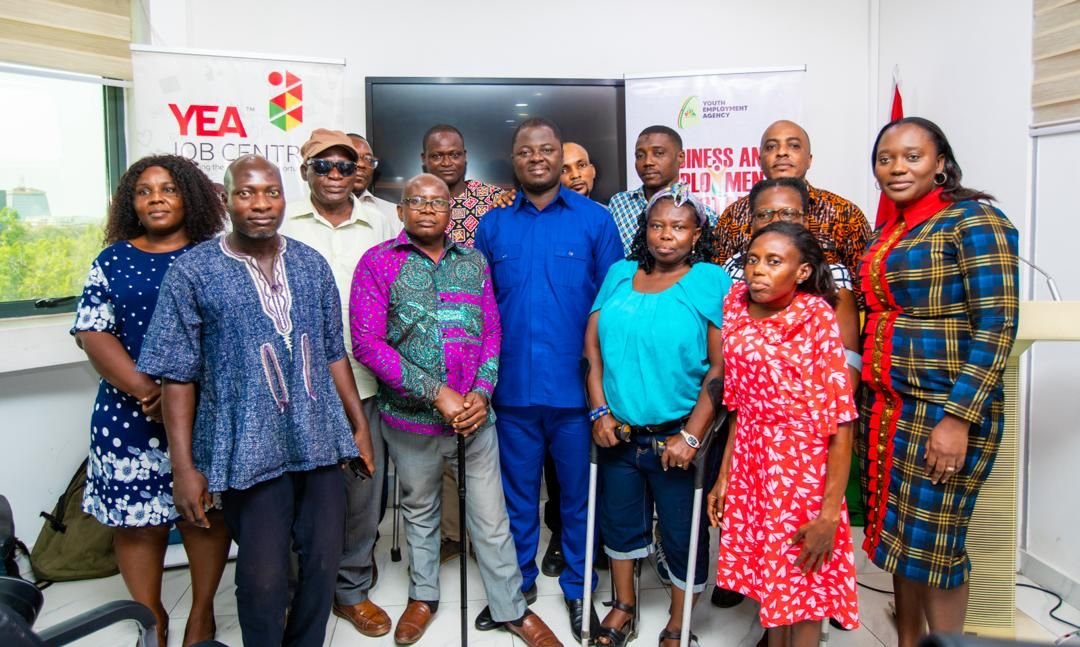
The Youth Employment Agency (YEA) has launched a groundbreaking employment initiative, employing 282 former tollbooth workers, the majority of whom are persons with disabilities (PWDs) who lost their jobs due to the suspension of road toll collection.
This move comes as part of YEA’s broader commitment to fostering inclusivity and empowerment within the workforce.
Mr Kofi Baah Agyepong, CEO of YEA, disclosed this during a press conference held at the Agency’s head office in Accra yesterday.
He explained that these individuals had been strategically placed in roles such as regional disability desk officers and district disability desk officers, spanning all regions and 266 operational districts of the Agency.
Pivotal role
Mr Agyepong stressed the pivotal role of the Agency in providing employment opportunities for Ghanaian youth amidst economic uncertainties.
He highlighted the unique challenges faced by former tollbooth workers following the government’s decision to suspend road toll collection, leaving hundreds of individuals without employment.
“While this decision elicited widespread enthusiasm, we must acknowledge its consequential impact on a segment of our society that found itself in a precarious situation. Specifically, over 200 Persons with Disabilities (PWDs) experienced a loss of livelihood as a direct result of this policy shift,” he noted.
He said these individuals, previously employed and serving as breadwinners for their families, were faced with unemployment and its accompanying hardships.
Proactive intervention
Recognising the need for proactive intervention, he mentioned that the YEA embarked on a comprehensive recruitment drive in collaboration with government ministries and advocacy organisations.
The result of this initiative, he indicated, saw 282 former tollbooth workers successfully employed as staff members of YEA.
“Rather than lamenting the circumstances, we viewed this as an opportunity to demonstrate our commitment to effecting positive change,” he added.
He indicated that this employment affords them not only a sense of pride and financial stability, but also positions of influence where they can contribute meaningfully to policy formulation and implementation concerning disability rights.
Additionally, Mr Agyepong stated that YEA had developed alternative pathways through impactful programmes such as the Business and Employment Assistance Programme (BEAP), Youth in Skills training and the garment and textile training initiative under the Garment and Textile module, ensuring equitable opportunities for all individuals.
PWDs welfare
According to him, the Agency had ensured the welfare and social security of its newly employed PWDs, guaranteeing them equitable treatment and access to the same benefits enjoyed by other government employees.
He expressed profound gratitude to all partners and collaborators, including the Ministry of Employment and Labour Relations, Ministry of Roads and Transport, Ghana Federation of Disability Organisations (GFD) and the Centre for Employment of Persons with Disabilities (CEPD), who contributed to the success of this initiative.
He further reaffirmed the YEA’s unwavering commitment to championing the rights and dignity of persons with disabilities.
Commendation
For her part, Christiana Nkrumah, Head of Gender and Disability at the Youth Employment Agency (YEA), praised YEA management and the government for the initiative to provide employment opportunities for Persons with Disabilities (PWDs).
She lauded the proactive approach taken by the YEA CEO and the government in addressing the employment needs of PWDs, particularly in light of the challenges faced by this segment of the population.
“The initiative to provide jobs for Persons with Disabilities is a commendable step towards fostering inclusivity and equality in the workforce. By prioritizing the employment of PWDs, the YEA CEO and the government have demonstrated a commitment to upholding the rights and dignity of all individuals,” she stated.
Mrs Nkrumah emphasised the importance of creating equal opportunities for PWDs to participate in the workforce, highlighting the positive impact that meaningful employment can have on their lives.
“This initiative not only provides PWDs with financial stability, but also empowers them to contribute actively to society,” she added.
She called on other government agencies and private sector organisations to follow suit, and prioritize the recruitment and inclusion of PWDs in their workforce.





